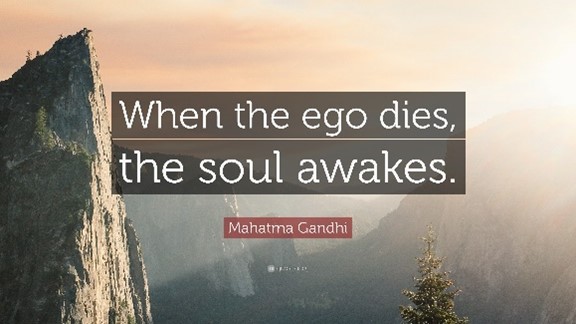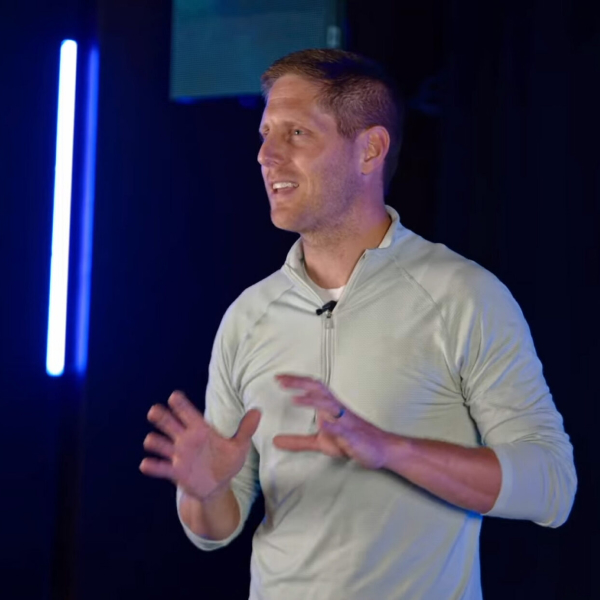If there is one message that you take away from this article, it is this: More complex people and leaders have a greater ability to effectively navigate complexity.
What is Complexity?
The reality is that some people are more simple-minded and others are more complex-minded.
Someone who is simple-minded tends to:
- See things in black and white
- View themselves as having a narrow set of abilities
- Employ similar abilities across a wide range of situations (e.g., They are a hammer and everything is a nail)
- Struggles to feel and distinguish between different emotions
- Focus on short-term needs or urgent issues and lose sight of the long-term bigger picture
- Not think divergently about resolving conflict between seemingly incompatible moral imperatives
Someone who is complex-minded tends to:
- See the colors of a rainbow (i.e., the multifaceted nature of things)
- View themselves as having a wide range of abilities
- Employ their various abilities in unique ways to meet the precise demands of the situation (e.g., They are a multitool)
- Feel and distinguish between a variety and wide range of emotions
- Able to manage themselves and their situations in a manner that allows them to continually focus on the long-term bigger picture
- Think divergently about resolving conflict between seemingly incompatible moral imperatives
In my experience working with executive teams, I have equally seen the spectrum on this range from simple-minded to complex-minded. Stated differently, I seem to almost equally see high-talent simple-minded executives and high-talent complex-minded executives.
One of the biggest challenges of this has been that the simple-minded leaders either (1) do not see their simple-mindedness, or (2) take pride in their simple-mindedness. And, they are unable to fully appreciate how their simple-mindedness is holding them back.
The Theory That Best Explains How We Improve our Complexity?
To my knowledge, the only theory available to explain how people can improve their complexity is vertical development theory, which suggests that adult’s thinking and cognitive structures can evolve and develop over time. Specifically, this theory suggests that:
- The aspect of an individual that determines their complexity is their sense-making system.
- Some individuals possess a simple and unrefined sense-making system and others possess a more complex and refined sense-making system.
- Individuals with more complex sense-making systems are better able to navigate complexity.
- Individuals can refine and improve their sense-making systems to become more complex. Researchers have found that 64% of all adults never really develop in their complexity, 35% develop to a moderate amount of complexity, and only 1% develops to a high level of complexity.
Vertical development theory also informs us on the conditions and efforts that are necessary to help individuals refine and develop their sense-making systems.

Elevating Your Complexity
If we understand that the foundational difference between leaders with low complexity and high complexity is a difference in the sophistication of their sense-making systems, then we need to consider what developmental activities serve to improve one’s sense-making systems.
There are two conditions necessary for improving our sense-making system in a manner that elevates our complexity.
First, we need to push our sense-making system.
Think about it this way, if we want to increase the strength of our muscles, we need to push them. Similarly, if we want to increase our complexity, we need to push our complexity.
There are two ways to do this:
- Heat Experiences – Engaging in situations that disrupt and disorient one’s habitual way of thinking, revealing that our current way of making sense of the world is inadequate.
- Colliding Perspectives – Exposing ourselves to people with different worldviews, opinions, backgrounds, training, and expertise. These experiences help us to see that there is more than just our perspective by which we can see the world.
But, you are probably aware that there are many people who have gone through heat experiences or had a collision of perspectives, but have not increased their complexity.
Thus, pushing our complexity isn’t enough by itself.
To get the value of pushing our complexity, we need the second condition: support. We generally need a process or person that will help us integrate and make sense of our newfound perspectives. It is this support that helps ensure that our new complex worldviews emerge and stabilize.
Other Ideas to Consider
Here are a variety of other perspectives to consider when it comes to elevating our perspective:
- Focusing on mindsets is a great way to foster colliding perspectives.
- There is neuroscience that suggests that lower complexity is a signal that one’s brain isn’t functioning optimally. Some treatments are being used to improve the brain functioning necessary for complexity (e.g., neurofeedback therapy).
- Psychedelics are commonly being viewed and used as a means of elevating complexity. There is evidence that psychedelics, when done with the right “support,” (1) provides the “push” that one may not get otherwise, and (2) serves to improve the neural wiring in the brain, making one’s brain more capable of complexity.
Conclusion
The reality is that being a more complex person is going to increasingly be an ability that is needed and sought after. If you are not engaging in efforts to elevate your complexity, it is likely that you are going to find yourself “behind the times” and feeling overwhelmed. It is only those who elevate their complexity above the complexity in their environment that will be able to continually operate at a high level.
Seeking Your Feedback
I am currently contemplating writing a book on how to elevate our complexity to more effectively navigate complexity. If this is a book you would like to read, please let me know. And, let me know why you would be so interested in reading this book.










6 Responses
Good day Ryan,
I would very much like to read your book on how to elevate our complexity as soon as it’s published. Despite having not read your other books as yet – though I hope I will eventually afford a copy, I am passionate about how people are affected by complexity of some sort. As such, I am interested in finding out how they can respond to that phenomenon for which I think your book will have some of the answers.
Thank you.
Thanks for your feedback, Setshogo! I’ll connect with you offline.
The terms simplicity and complexity resonate with me, recently having read Brian McLaren’s book Faith after Doubt, where he adopts a version of Fowler’s stages of faith. He uses simplicity > complexity > perplexity > harmony, where each stage is catalyzed by doubt and each previous stage is integral to the developing of the next, like rings in a tree, one isn’t necessarily better than the other. I see this as a scale of increasing complexity, where harmony (the end stage in the cycle) is the ability to accept that there will always be tensions between certain beliefs and values of different people and that that’s ok. Growing in complexity also allows us to grow in our capacity to love, connect, and show empathy to others. More on this topic would only serve to make people better. I haven’t read The Elevated Leader yet, but your first book on mindsets was life altering for me – and I’m still on that course and finding a lot of fulfillment in it.
Lee, my thinking has also been influenced by Fowler’s stages of faith. I haven’t read the book you referenced, but it is now on my “to-read” list. Thanks for sharing.
I am so glad to hear that Success Mindsets had such a positive effect on you. Thanks for letting me know.
Hi Ryan
I would be very interested in reading your book about complexity. I have recently read your book The Elevated Leader which I have found to be excellent and extremely useful. I design leadership programs for large corporate organizations so I am constantly seeking the latest research and thinking around the field of leadership development.
I appreciate the feedback on my prior book and on the future book. More to come 😉